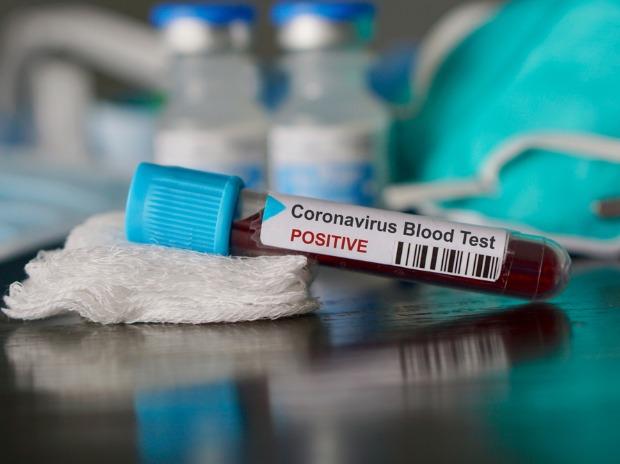What is coronavirus?
Coronaviruses are a large family of viruses that may cause illness in animals or humans. COVID-19 is the name given to the infectious disease caused by the most recently discovered novel coronavirus, called severe acute respiratory syndrome coronavirus 2 (SARS-CoV-2). This new virus and disease were unknown before the outbreak began in Wuhan, China, in December 2019. Not everyone who is infected with SARS-CoV-2 will end up getting sick with the disease, COVID-19, and people can have anything from no symptoms at all to being mildly sick or severely ill.
How does Covid-19 affect people living with HIV?
How COVID-19 affects people living with HIV is not fully known yet. At present, there is no evidence to suggest that there is an increased risk of infection and increased severity of illness for people living with HIV (with the understanding that they are not immunosuppressed and/or have no other co-infections or co-morbidities). However, people living with HIV who are not on treatment or who are not virally suppressed may have a compromised immune system (measured by a low CD4 count) that makes them vulnerable to opportunistic infections and more severe illnesses.
It is thought that people living with HIV who have achieved viral suppression through antiretroviral treatment and do not have a low CD4 count will be affected by COVID-19 similarly to what a person not living with HIV would be, based on other coronavirus-caused disease outbreaks such as SARS (caused by SARS-CoV-1) and MERS (caused by MERS-CoV), where only a few cases of mild disease among people living with HIV were reported.
What is the advice for people living with HIV related to Covid-19?
People living with HIV are advised to take the same precautions as the general population and adhere to their specific government recommendations. Things people can do to protect themselves and others from COVID-19 include:
- Regular hand-washing with soap and water for at least 20 seconds.
- Cover your mouth and nose with a tissue, your sleeve or your elbow (not your hands) when you cough or sneeze.
- Put any used tissues into the bin immediately.
- Avoid touching eyes, nose or mouth with unwashed hands.
- Stay away from work, school, public spaces, and other people if you become sick.
- Continue to take your HIV treatment regularly, as prescribed, to keep your immune system as strong as possible.
People living with HIV who know their status and are not yet on antiretroviral treatment should start treatment without delay.
If you need to access health services, it is recommended to follow national guidance and where possible, call your healthcare provider before arriving at a health facility. In addition, measures should be taken to ensure appropriate infection control and follow guidance on physical distancing.
People living with HIV who are on treatment should ensure that they have at least 30 days of ARVs with them and, where possible, a 3 to 6 month supply of ARVs. Access more information on strategies for extending the duration of ART refills and reducing contact with health facilities.
People living with HIV should stay socially connected with networks and communities using technology where possible and address any stress or anxiety with friends and your healthcare provider.
Does taking PrEP prevent contracting on Covid-19?
There is no evidence that PrEP prevents you from getting COVID-19 or that it will help you recover quicker if you use PrEP.
Can HIV medication be used to treat Covid-19?
Currently, there is insufficient data to assess the effectiveness of any type of antiretroviral for treating COVID-19. A recent study published in the New England Journal of Medicine showed that a combination of lopinavir and ritonavir – both antiretrovirals used to treat and prevent HIV – was not associated with clinical improvement or mortality in seriously ill patients with COVID-19 compared to standard of care alone. The question of whether earlier treatment or different combinations of antiretrovirals and other drugs could have clinical benefit is an important one that requires further study. A Journal of the International AIDS Society (JIAS) article systematically reviewed the clinical outcomes of using antiretroviral drugs for the prevention and treatment of coronaviruses and planned clinical trials.
To date, there is no proven vaccine or antiviral medicine to prevent or treat COVID-19. Possible vaccines and some specific antiviral treatments that target the SARS-CoV-2 virus itself, along with treatments to ameliorate the respiratory complications of severe disease (such as leronlimab), are under investigation as part of clinical trials. The World Health Organization is coordinating efforts to develop new vaccines and medicines and test the efficacy of existing medicines to prevent and treat COVID-19.
For example, the SOLIDARITY trial is a multi-arm, multi-country trial of existing drugs already on the market to treat other diseases to assess if there is any reduced morbidity or mortality from COVID-19. Currently, four treatments are included: (1) remdesivir, (2) lopinavir and ritonavir, (3) lopinavir and ritonavir plus interferon beta, and (4) chloroquine. This combined effort will allow comparison of data and speed up the trials overall.
Find out more information and get the latest guidance from the World Health Organization on COVID-19, HIV and antiretrovirals




